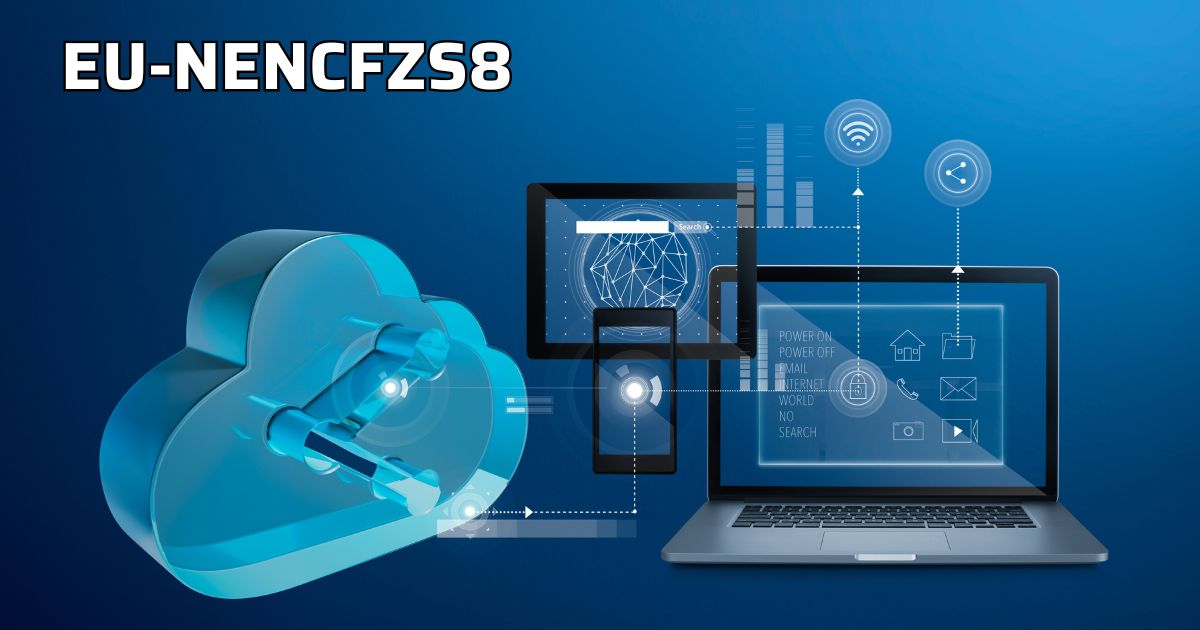The European Union (EU) has made substantial progress in digital innovation, recognizing its key role in shaping the modern economy. Among the emerging frameworks that are influencing this landscape is EU-NENCFZS8. This initiative focuses on enhancing connectivity and supporting technological advancement throughout Europe. As digital technologies continue to evolve, this framework promises to be a catalyst for growth and transformation.
This article dives into the core aspects of EU-NENCFZS8, exploring its features, potential, and the ways in which it will impact the future of technology in Europe. By examining its integration with broader EU strategies, we can better understand how it will define the digital landscape.
What is EU-NENCFZS8?
EU-NENCFZS8 is a forward-thinking digital framework designed to create a unified infrastructure across Europe. This initiative plays a central role in ensuring that the EU stays competitive in the global digital economy. By promoting interoperability and efficiency, it aims to help businesses adopt emerging technologies and remove barriers that hinder digital collaboration.
The framework encompasses technologies like artificial intelligence (AI), blockchain, and the Internet of Things (IoT), helping to reduce the digital divide. By providing resources and policies to support innovation, EU-NENCFZS8 ensures that all EU nations can compete on an equal footing in the digital realm.
The Evolution of Digital Innovation in the European Union
The EU has long been a leader in driving digital innovation, with key initiatives such as the Digital Single Market (DSM) and the introduction of the General Data Protection Regulation (GDPR). These milestones have set the foundation for a digital economy that encourages seamless cross-border trade and data sharing.
Building on this legacy, EU-NENCFZS8 is poised to accelerate the digital transformation. By offering a structured framework for technology adoption, it ensures that EU businesses can integrate cutting-edge solutions like AI and IoT into their operations. The initiative continues the EU’s mission to create a more connected and efficient digital ecosystem.
EU-NENCFZS8: A Game-Changer for the Tech Industry
The integration of EU-NENCFZS8 into the EU’s digital strategy has the potential to revolutionize the tech industry. By enabling the adoption of advanced technologies, it provides businesses with the tools to enhance automation, improve efficiency, and scale operations. Industries such as healthcare, finance, and manufacturing are particularly poised to benefit from this framework.
For example, AI can improve healthcare diagnostics, while blockchain can increase transparency in financial transactions. Additionally, the IoT will streamline supply chains and enhance product delivery systems. These applications will help businesses improve their processes and stay competitive in an ever-changing market.
Also Read: 70537865 Allis
Key Features of EU-NENCFZS8
One of the key strengths of EU-NENCFZS8 is its focus on interoperability. The framework ensures that digital systems across the EU can work together seamlessly, promoting collaboration and enhancing innovation. This is crucial for businesses that need to integrate a variety of digital tools and platforms.
Another notable feature is scalability. EU-NENCFZS8 provides a flexible infrastructure that supports businesses of all sizes. Whether a startup or a large corporation, organizations can expand their operations without disruptions. Additionally, robust cybersecurity protocols ensure that digital interactions remain secure, further enhancing trust in the system.
How EU-NENCFZS8 Supports the European Digital Single Market
EU-NENCFZS8 aligns with the EU’s Digital Single Market (DSM) strategy, aiming to create a unified digital economy across all member states. By enabling smoother digital transactions and interactions, this framework helps eliminate barriers to cross-border trade, making it easier for businesses to operate throughout the EU.
Through this initiative, digital goods and services can flow freely across borders, allowing businesses to reach new markets. Additionally, the framework fosters collaboration between businesses and governments, driving forward digital solutions and ensuring that the EU remains competitive in the global economy.
The Role of EU-NENCFZS8 in Sustainability and Green Tech
Sustainability is at the core of the EU’s digital strategy, and EU-NENCFZS8 plays an important role in supporting green technologies. By promoting the adoption of digital solutions like smart grids and energy-efficient systems, the framework aids in reducing the environmental impact of businesses and industries.
AI and data analytics are also integrated into the framework to help monitor and reduce environmental footprints. These technologies provide real-time insights into energy consumption and waste management, helping businesses make more informed decisions and align with the EU’s sustainability goals.
The Impact of EU-NENCFZS8 on the Workforce
The digital transformation driven by EU-NENCFZS8 will impact the workforce in profound ways. As industries adopt new technologies, there will be a growing demand for skilled workers in fields like data science, AI, and cybersecurity. While some jobs may be replaced by automation, new opportunities will emerge in these high-tech sectors.
To support this shift, the framework includes initiatives to upskill the workforce, offering training programs and educational resources. By ensuring that workers can adapt to the digital economy, EU-NENCFZS8 helps guarantee that the workforce is ready for the challenges of tomorrow.
Challenges and Concerns Surrounding EU-NENCFZS8
Despite the promising benefits, there are challenges to implementing EU-NENCFZS8 across Europe. One major concern is data privacy and cybersecurity. As digital systems become more interconnected, the risk of cyberattacks and data breaches increases. The EU will need to enforce strong regulatory frameworks to ensure data protection.
Another issue is the digital divide between member states. While some EU countries are well-positioned to implement advanced digital technologies, others may face challenges due to outdated infrastructures. To overcome this, it is essential to provide support for regions with less developed digital ecosystems.
Conclusion
As we look ahead, EU-NENCFZS8 is poised to play a central role in Europe’s digital future. By creating a flexible and secure framework for digital innovation, it will support businesses, governments, and individuals as they navigate the rapidly evolving digital landscape. The framework’s emphasis on sustainability, scalability, and interoperability ensures that the EU can maintain its competitive edge.
However, for EU-NENCFZS8 to succeed, it must address challenges such as data privacy, digital inequalities, and regional disparities. With continued investment and strategic implementation, the initiative has the potential to shape a thriving digital economy across Europe, making the EU a leader in global innovation.










